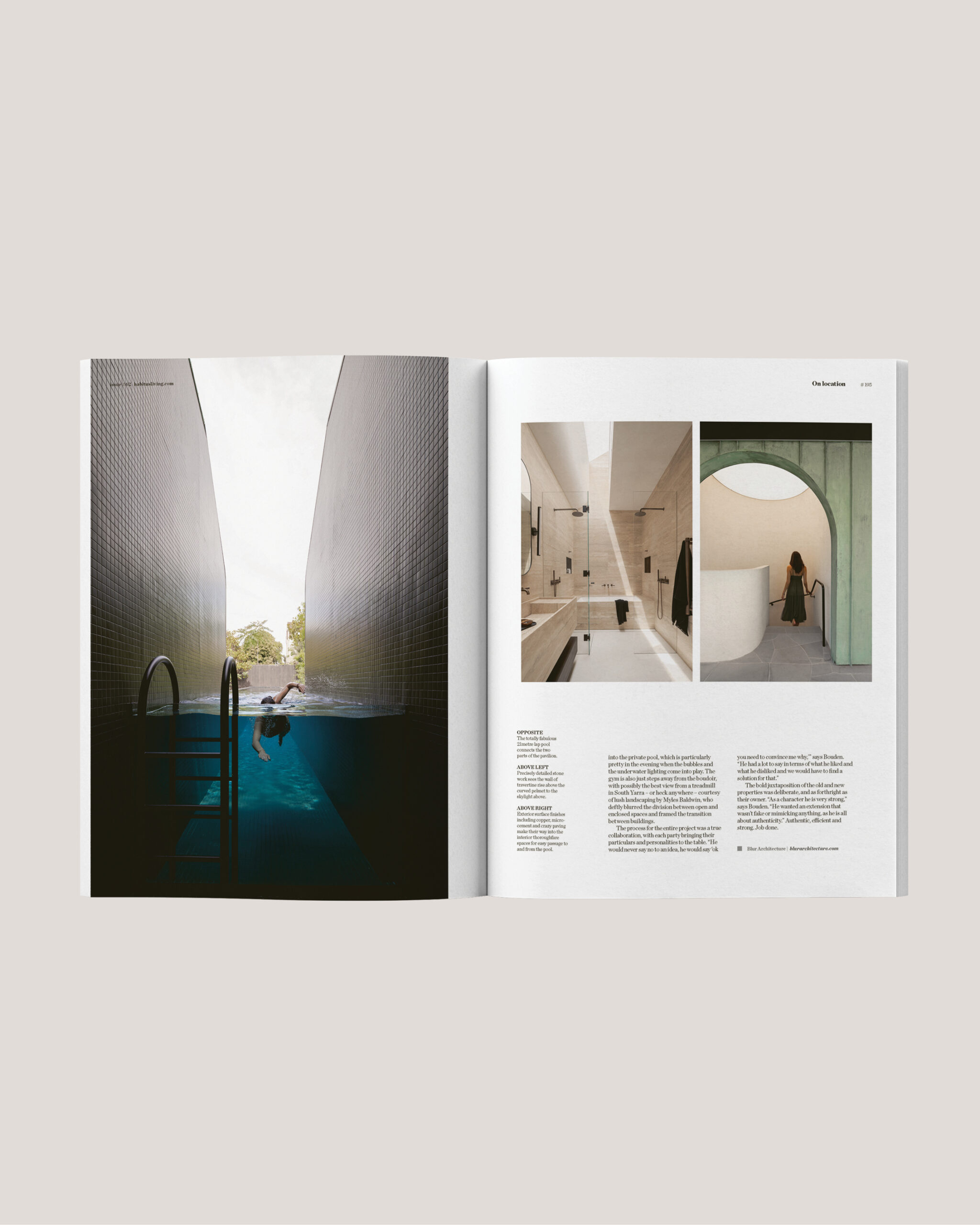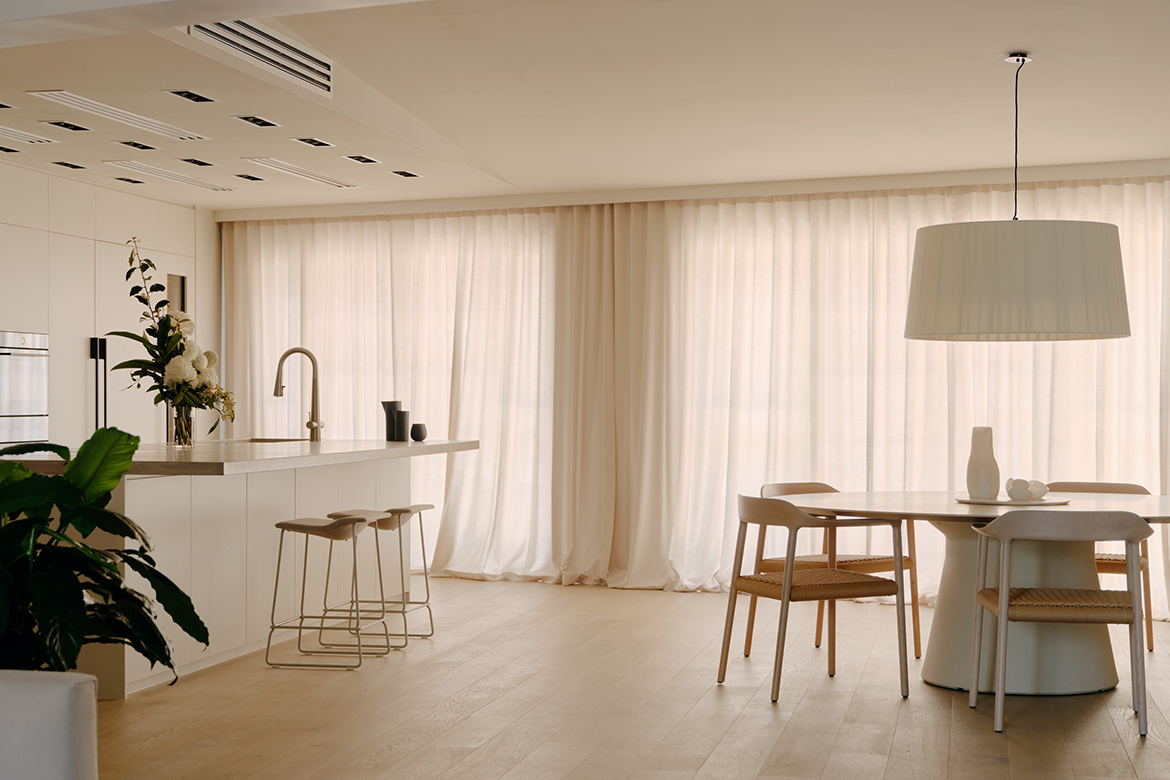Home to much of Sydney’s design community, Surry Hills is certainly creative and dynamic – but it’s also charming, beautiful and even quaint in some corners. With the launch of V-ZUG’s very own, inaugural Sydney studio in the area, its credentials as capital of design in the city have only grown stronger.
In fact, the premium Swiss brand’s new studio has been designed not only to fit into Sydney, but very specifically with the Surry Hills streetscape in mind. Most obviously – and charmingly – this is expressed by leaning into the residential feel of what is a 150-year-old terrace house. The terrace house typology of course captures much of what Australian design does best, and it would have been folly for V-ZUG to try to erase this presence on Fitzroy Street.
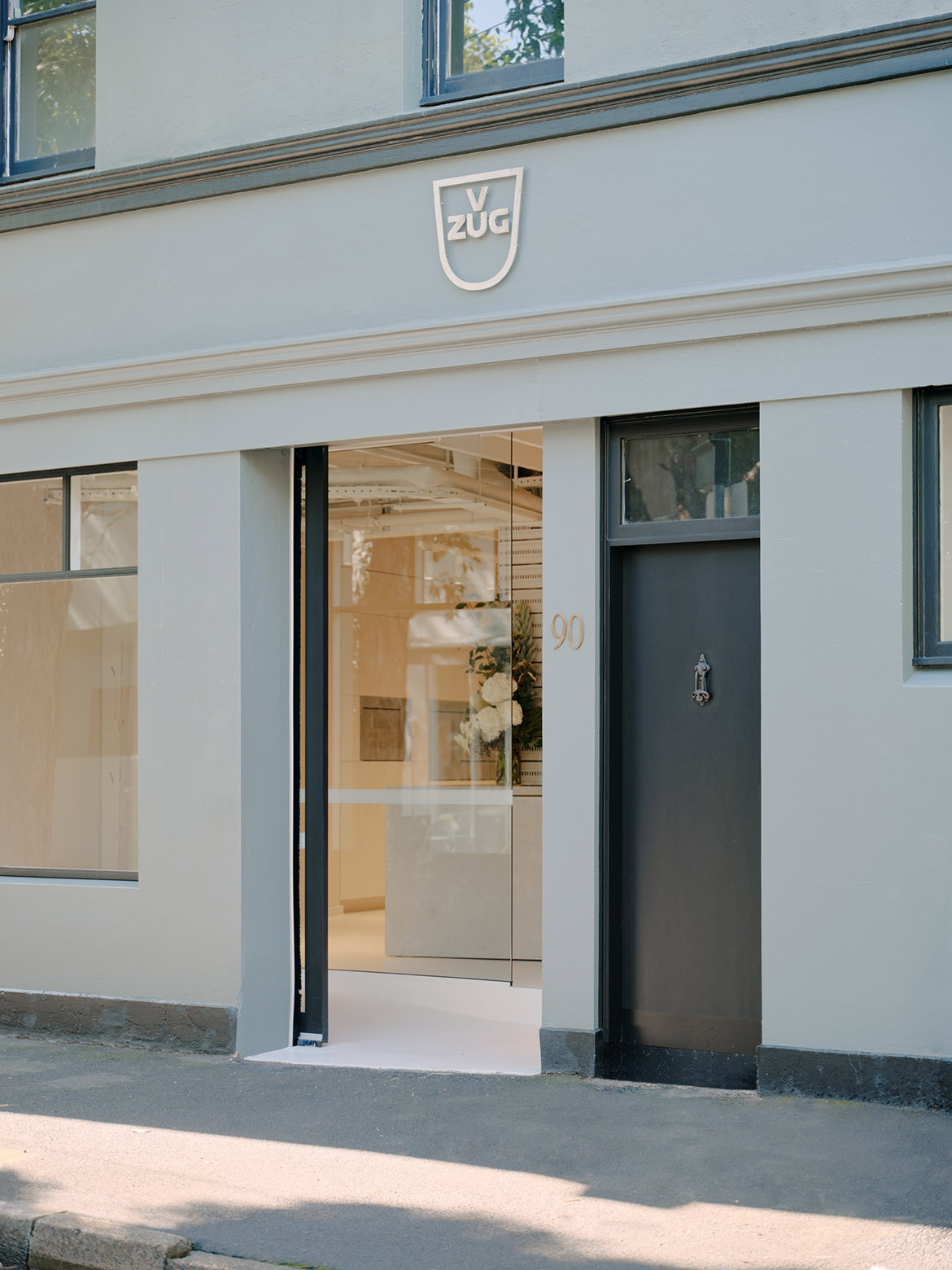
Instead, the character-rich residential atmosphere is embraced. As Nic Naes, V-ZUG Managing Director, says, “the residential setting became a natural direction when we found the location in Surry Hills.” The design, he adds, is about “paying respect to that history while also not being limited by it.”
The site-specificity is in-keeping with V-ZUG’s international approach, where studios in different settings are always designed to have local connections. V-ZUG’s Global Interior Art Director, Gabriel Castelló, has been integral to the design and success existing studios in London, Paris, Milan, Vienna, Munich, Hong Kong, and Singapore, while further exciting plans are in the making for Hamburg, Melbourne and Milan in 2024.
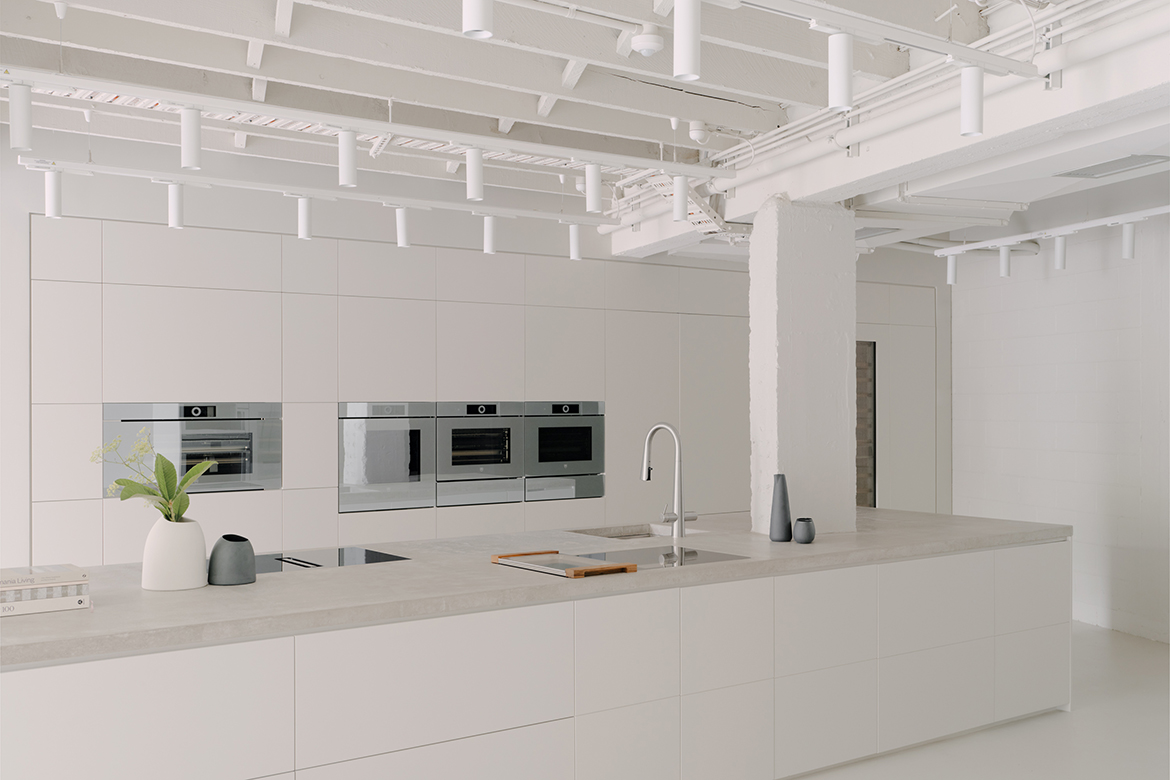
“The concept of V-ZUG is always to try to be local,” explains Castelló. “I think it’s important because whatever we put into our space speaks about us. Our V-ZUG Studio Sydney is very different to others around the world, and we can’t wait for Sydneysiders to experience it for themselves.”
With a strong and productive relationship already in place with Winnings, V-ZUG sees this step of establishing its own presence in Sydney as a complementary one. It’s a picture of the design landscape that illustrates the company’s identity as a boutique, premium choice for the discerning customer – having had the opportunity to see the products among a wider selection, they can then step into the Sydney studio to have a deeper, more direct experience with V-ZUG’s products.
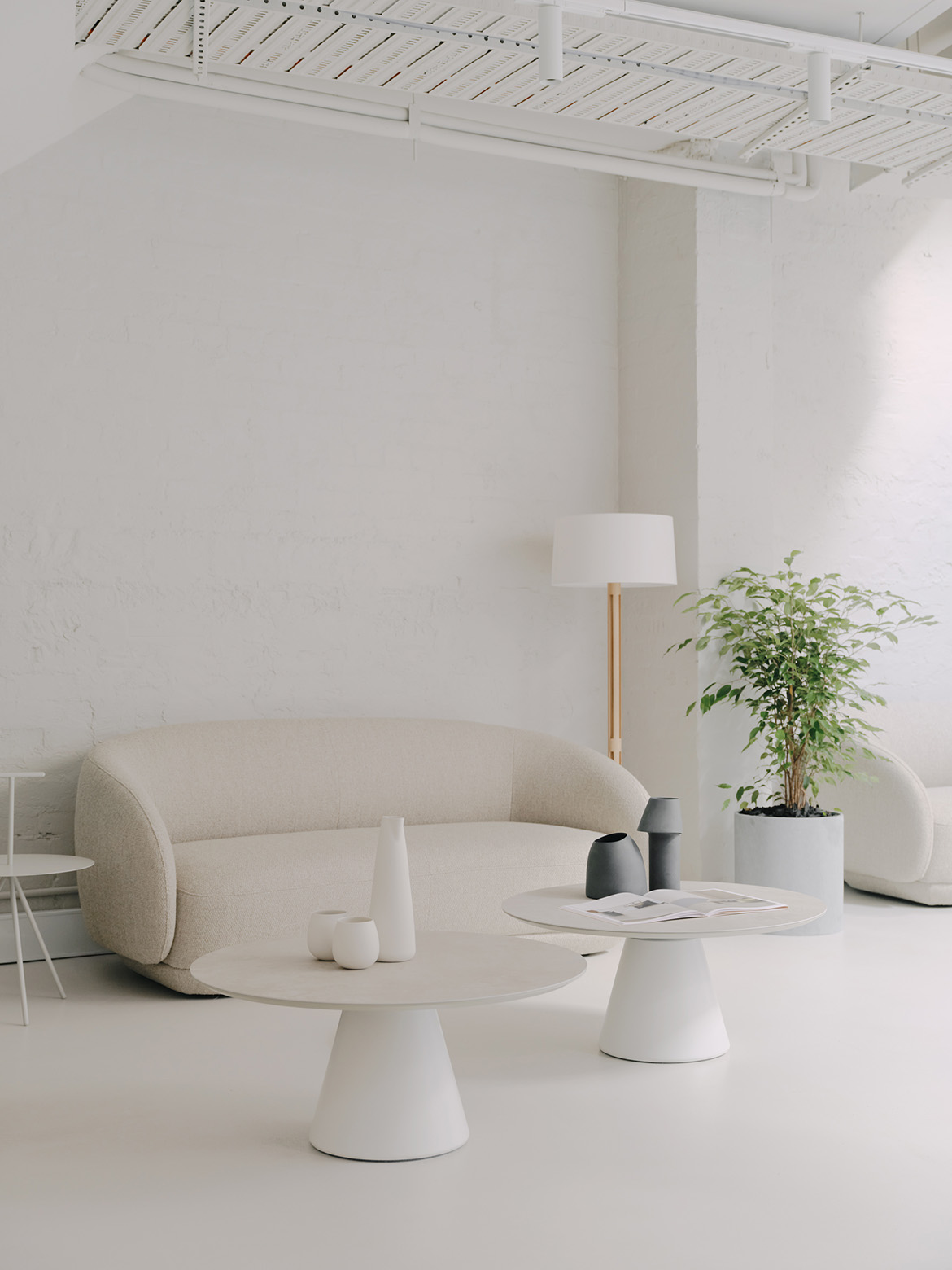
This is where the minimalist design comes to the fore. It allows, as Naes explains, the products to be seen and experienced “without distraction.” The space is pared-back, both in terms of its muted colour tone and the refusal to stuff it full of objects, allowing the visitor to interact with products in a relaxed, isolated manner.
“We are deliberately embracing a very minimalist design as we welcome people into an almost residential home,” says Naes. “This is our opportunity to shine – when visitors come and experience V-ZUG in our own space, they really get that validation that we’re design- and lifestyle-driven.”
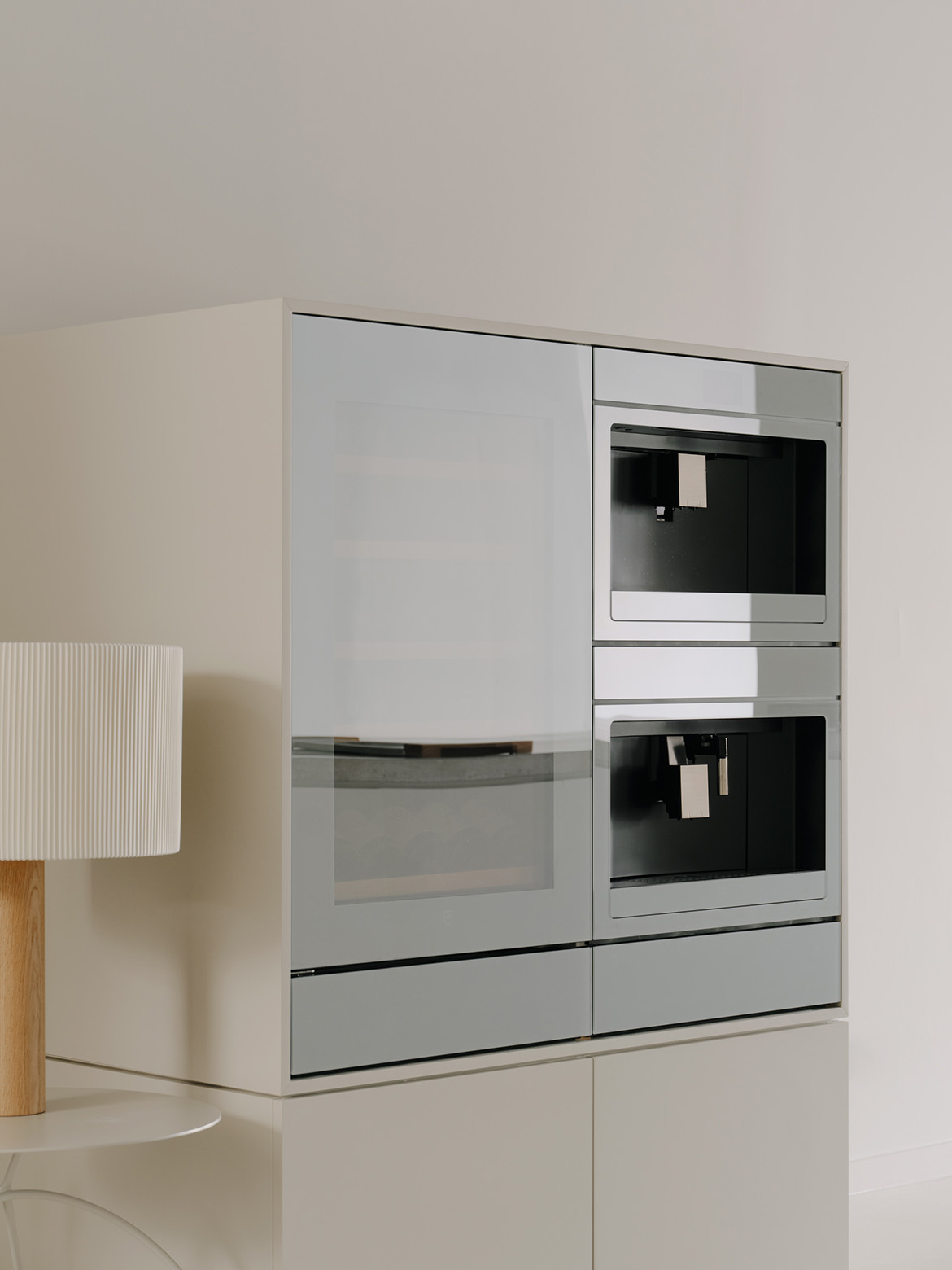

The underlying, unifying theme becomes clear: V-ZUG as boutique, bespoke and premium, offering experiences that are personalised and intimate. The setting expresses it, as do the colour and material palettes.
Interestingly, so too does the studio’s launch – or, more accurately, launches. Instead of the choreographed grand opening, V-ZUG decided to open the Sydney studio through a series of ‘soft-launch’ events, allowing for people from across the (very busy) design community to make it fit with plans in their own way. From intimate evening drinks to a morning panel discussion, the gatherings have been varied and personalised: “That is the V-ZUG way, treating our partners with something that is intimate and personal, and I think it’s also befitting of our brand as a boutique manufacturer.”

V-ZUG also prides itself on its renown as one of Europe’s most sustainable brands, having achieved 100 per cent carbon neutral in production since 2020. “We left as much as we possibly could [in the new space],” explains Naes, who recalls Adam Haddow’s response during the panel discussion about how the most sustainable building is the one you don’t build.
“We sourced as much as we possibly could locally and tried to reduce our consumption of materials in a very similar way to how we detail our products,” adds Naes. “It’s an expression of the minimalistic way we do things.”
From the residential atmosphere of its Surry Hills setting to the understated colour and material palettes, and from the multiple launch gatherings to the emphasis on sustainability, V-ZUG Studio Sydney expresses the company’s identity while finding a charming home in the city.
V-ZUG
vzug.com
Photography
Tom Ross
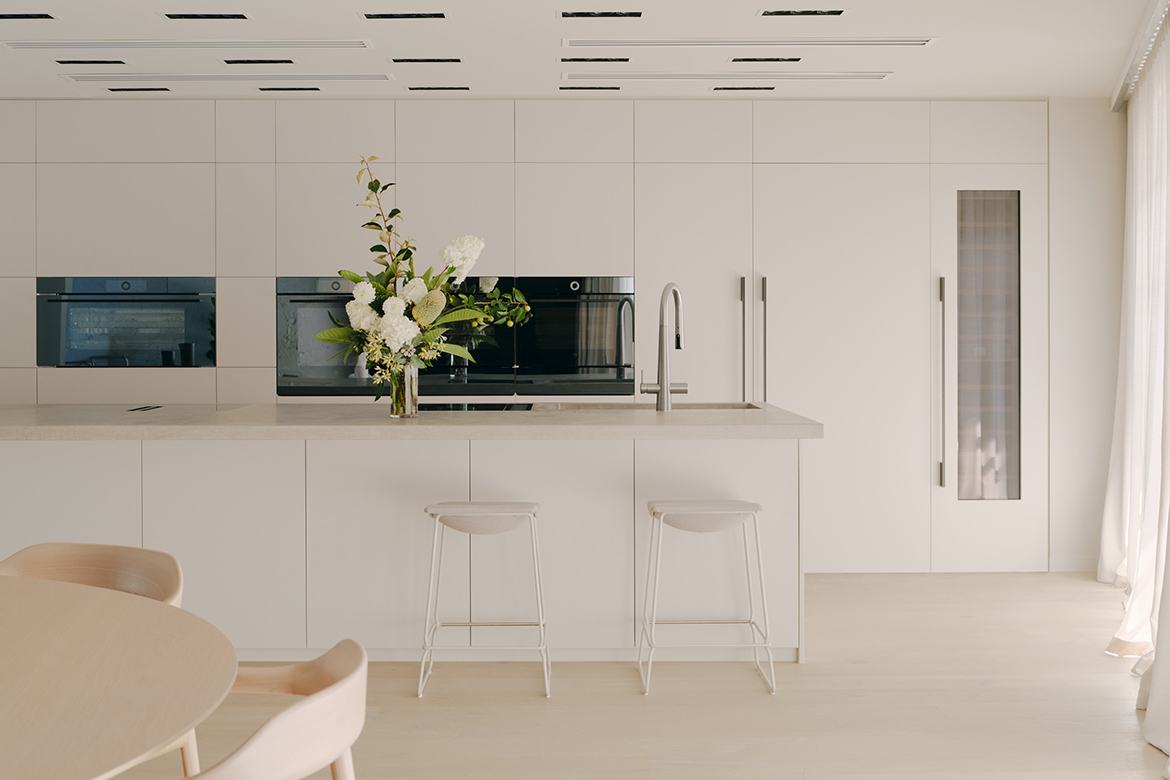
More terrace house design inspiration with Sam Crawford Architects
